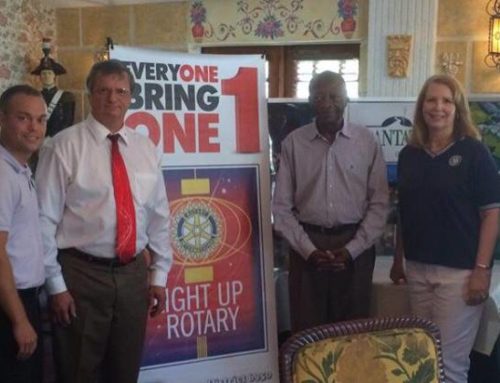President Barack Obama signed an omnibus appropriations bill in January that provides $205 million to support polio eradication in 2014, through the U.S. Centers for Disease Control and Prevention and U. S. Agency for International Development.
The largest government donor to polio eradication, the U.S. has contributed more than $2.3 billion since the mid-1980s, when 125 countries were polio endemic and the disease afflicted 350,000 people annually. Today, only Pakistan, Afghanistan, and Nigeria are endemic, and in 2013, the combined incidence of polio in those countries fell to a record-low 157 cases. Last month , India reached a three-year milestone without polio, paving the way for the entire Southeast Asia region to be certified free of the disease.
“Eradicating polio will leave a lasting legacy of health care infrastructure, experience, and expertise that is already being used to benefit a broad range of global public health efforts,” says James Lacy, chair of Rotary’s Polio Eradication Advocacy Task Force for the United States and past president of Rotary International.
The task force leads Rotary’s efforts to inform the U.S. government and other funding sources of the urgency and benefits of supporting the Global Polio Eradication Initiative (GPEI).
One of Rotary’s chief responsibilities in the GPEI is advocacy. In addition to contributing more than $1.2 billion to the initiative, Rotary has helped secure over $9 billion from donor governments since the GPEI was launched in 1988.
By Dan Nixon
Rotary News
31-JAN-2014

